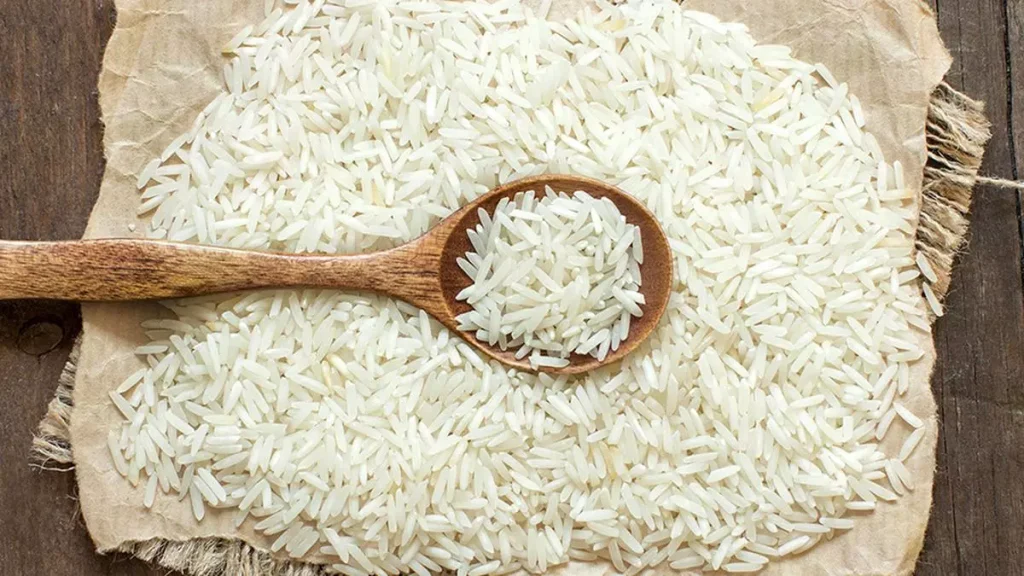Tags
India moves European court after EU rejects its plea to access Pakistan’s proof on Basmati origin
Islamabad had provided the proof in annexure but EU says it would affect its global relations.
By Subramani Ra Mancombu.

India has approached the European Court of Justice after the European Union rejected India’s application to access the Annexures attached to Pakistan’s application for protected Geographical Indication (PGI). The EU claimed such access would undermine its international relations with Islamabad.
On March 27, the lawyer of the Agricultural and Processed Food Products Export Development Authority (APEDA) filed the “confirmatory application” and the EU rejected it on July 1, details available now show. Following this, APEDA has now gone to the European Court of Justice.
India has asked for the documents submitted by Pakistan, which prove the origin of basmati in the claimed areas. The documents are part of the annexures.
No reasons given
Experts say the EU has pointed to its regulation 1049/2001 which gives it the power to refuse to provide details on grounds of commercial interests of a natural or legal person, including intellectual property.
According to trade sources, Indian lawyers have pointed out that the European Commission has failed to give the reasons for the non-disclosure of the documents.
“The EU did not publish annexures as part of Pakistan’s application. Annexures are a crucial part of the evidence in negating the historical origin claim of Pakistan,” said S Chandrasekaran, author of “Basmati Rice – The Natural History and Geographical Indication”.
European Commission cannot consider “international relations” and “commercial interests” to decide on PGI applications. While deciding the PGI, the European Commission should merely consider the merit of the case following Article 22 of the TRIPS Agreement.
‘Political considerations’
Chandrasekaran said the PGI relies on quality, reputation and other characteristics of a product. “By choosing to withhold the documents using the context ‘undermine international relations’, the European Commission has revealed a new fact that it decides the PGI based on “political considerations”, he said.
Pakistan has not provided sufficient proof in the annexure on the origin of basmati rice in its territory. “If we go into Pakistan reference document on origin, it shows something else,” the author of the Basmati history book said.
“Why is the EU trying to protect Pakistan?” he wondered.
The EU follows a “rule-based system and order”. Such a system is missing in India’s case, sources said.
“This is another classic example of the EU’s double standard and matter of convenience. India should strongly take up the case. When the EU is openly approaching and advocating the case politically, India should approach should also be political,” said Chandrasekaran.
‘Target EU whiskey, wines’
APEDA should not leave the issue to a few lawyers and its representatives, the sources said. “Our politicians should be involved in protecting the exclusive rights of Basmati. As a young member of Parliament Shivraj Singh Chouhan (currently the Minister of Agriculture and Farmers’ Welfare) was the first person to raise the issue of protecting basmati rice in 1994 against Texmati and Kasmati of the US,” said Chandrasekaran.
Trade sources said wine and spirit is not part of Indian culture. The major agenda of the EU in the proposed India- EU Geographical Indication Agreement is to promote wine and spirit. “Why cannot India consider exclusion of wine and spirit in the context of culture and health from any international agreement? When mercury can be banned in the context of health and environment, why not wine and spirit?,” wondered a trade source.
India should target the EU’s whiskey and wine market valued at over €10 billion. “The market access sought by the EU is much higher than what we seek for basmati rice from Europe. If the EU cannot adopt a transparent approach and rule-based system, India should review the standard operating procedure for the free trade agreement (FTA),” said the trading source.
Chandrasekaran said India should come to an understanding on the precise definition of PGI with the EU. If the EU continues its current approach in PGI, the India-EU FTA will become a zero-sum game due to prevailing ambiguities.
Pakistan book of specification of Basmati rice states, “The historical origin of ‘Basmati’ rice has been traced back to the ‘Kallar tract’ in the province of Punjab in Pakistan where it has been grown for centuries and the name ‘Basmati’ due to its unique and special aroma.” By using this statement, in particular the term “historical origin”, Pakistan is trying to get first right on Basmati, said Chandrasekaran.
Based on British agri ledger
However, the book quoted in annexure 16 of Pakistan’s submission – “Race of rices in India” – is based on the Agriculture Ledger of British India and Pakistan’s claim is disputable, he said.
Chandrasekaran said Punjab province in Pakistan began cultivation of wheat and cotton after the development of canals in 1830. “Basmati rice was a negligible subject and confined to the laboratory before partition. Based on historical literature, the areas claimed were historically scrubs and bushes,” he said.
Trade sources said Pakistan has not submitted credible historical evidence of growing and trading Basmati rice. It has merely submitted contemporary evidence, which is not useful for granting PGI registration.
Though the EU upheld has Italy’s objection to provide PGI tag for basmati rice, this development is a pointer to how the European Union is biased against India, the sources said.
https://www.thehindubusinessline.com/economy/agri-business/india-moves-european-court-after-eu-rejects-its-to-access-pakistans-proof-on-basmati-origin/article69020246.ecePublished Date: December 24, 2024






